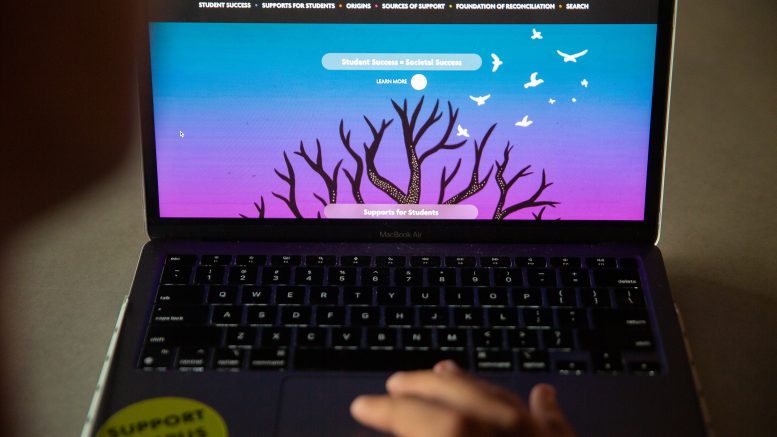A new website hosted by the Manitoba Industry-Academia Partnership (MI-AP) as part of the Manitoba Collaborative Indigenous Education Blueprint (MCIEB) will make it easier for Indigenous post-secondary students to find and access resources to assist them with their studies.
Horizon is a searchable database of supports available to Indigenous students that includes academic, financial, housing and transportation services.
Denise Tardiff, the manager of the MCIEB, said the inspiration for Horizon was the frustration students encountered when trying to find resources or supports for their post-secondary education.
“Often, the words that you might choose to Google won’t necessarily yield the results that you’re looking for,” she said.
“You could go on a government site and find what the department of education had for supports and services, or you could go to industry and the Business Council of Manitoba and if you were on their website you might discover that they have an Indigenous awards program, but there wasn’t a consolidated list or place to look. So, that was why Horizon was born.”
MCIEB is an initiative aiming to increase access to education for Indigenous students within the province, and to include Indigenous material in education at all levels.
“The Manitoba Collaborative Indigenous Education Blueprint is essentially a signatory document that has ten commitments, which were based on the TRC’s calls to action as they relate to education,” Tardiff said.
Manitoba’s universities and colleges signed onto the MCIEB in 2015.
Tardiff said that everything on the new site has been “painstakingly tagged” to indicate what need a specific listed resource might address.
“As long as they can identify the need that they have, they can search the database that way and it will bring up from across the province, no matter what the source, it will bring up the service that is appropriate for them,” she said.
Tardiff pointed out that many non-urban Indigenous students leave behind their communities, families and support systems to come to university.
“Without some of those safety nets that urban students might be more likely to have, that just compounds the difficulty that they face,” she said.
“They wind up dealing with just a lot of logistics and bureaucracy instead of being able to use their energy to concentrate on their program of study and their academics.”
She hopes the website will be useful for Indigenous students in remote and northern communities who may not have “experience navigating large organizations and institutions” due to unreliable internet access.
“I would say that being able to do good research and source out those needed supports is actually a skill,” she explained.
“That’s quite a big barrier now that everything is all online, so this I hope serves to even things up in that way.”

